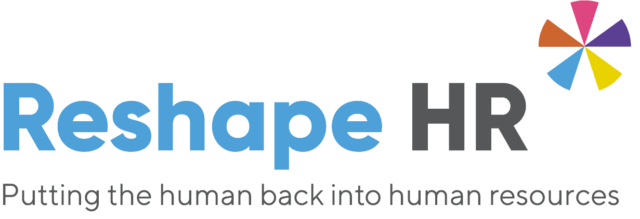Background
Diabetes Week is organised by Diabetes U.K and is celebrated nationally on an annual basis.
Its aim is to raise awareness of diabetes and to encourage people to share their experiences of living with diabetes.
This year Diabetes Week will take place from the 13th – 19th June 2022. The hashtag which is being used this year to promote Diabetes Week is #DiabetesWeek.
Theme
For 2022, the theme is “This is your #DiabetesWeek”, which focuses on celebrating people who have diabetes and the challenges which they face.
According to diabetes.org.uk: “Your blood sugar won’t always be in range. Figuring out food labels and menus might have you tearing your hair out. And you might have treated that 3am hypo with a few too many jelly babies. (And biscuits. Oh, and that sandwich…) But you’re doing it, every single day. Living with diabetes, juggling the ups and downs. And that’s worth celebrating.”
What is Diabetes?
According to Diabetes UK: “Diabetes is a serious condition where your blood glucose level is too high. It can happen when your body doesn’t produce enough insulin or the insulin it produces isn’t effective. Or, when your body can’t produce insulin at all.”
There are two main types of diabetes, Type 1 and Type 2:
- According to Diabetes UK: “When you’ve got type 1 diabetes, you can’t make any insulin at all.”
- Diabetes UK states “If you’ve got type 2 diabetes, it’s a bit different. The insulin you make either can’t work effectively, or you can’t produce enough of it. They’re different conditions, but they’re both serious.”
What is a diabetic emergency?
According to the Red Cross: “In most cases, the person’s blood sugar levels become too low. This is called hypoglycaemia. It can happen when the person has missed a meal or exercised too much. If left untreated, a diabetic emergency can become very serious.”
Another form of a diabetic emergency is known as “Diabetic Ketoacidosis (DKA)”. According to diabetes.co.uk: “Diabetic ketoacidosis is a serious condition which develops if blood glucose levels become very high. The symptoms include vomiting and a laboured form of breathing known as kussmaul breathing, which may be identified by gasping breathes. If someone is going through DKA, it is often possible to detect ketones on the breath, which can be similar to a fruity smell or similar to nail polish.”
Diabetes.co.uk further this by stating about Hyperosmolar Hyperglycaemic Nonketotic Syndrome (HHNS): “HHNS is a short-term complication that can occur in people with non-insulin dependent diabetes, such as type 2 diabetes, if blood sugar levels rise to a very high level of 30 mmol/l or above.”
What do I do if someone is having a diabetic emergency?
If someone is suffering from hypoglycaemia, the NHS states that the person should: “Have a sugary drink or snack – like a small glass of fizzy drink (not a diet variety) or fruit juice, 4 to 5 jelly babies, 3 to 6 glucose tablets or 1 to 2 tubes of glucose gel.”
- The NHS also has a step-by-step guide to follow if someone is experiencing from hypoglycaemia symptoms, if you would like to know more about this, then please visit www.nhs.uk/conditions/low-blood-sugar-hypoglycaemia. If the person is unconscious or having a seizure, then please call 999.
- If someone is suffering from diabetic ketoacidosis, diabetes.co.uk states: ”If diabetic ketoacidosis is suspected and the person is either incoherent or unable to help him or herself, call 999.
- If someone is suffering from “Hyperosmolar Hyperglycaemic Nonketotic Syndrome”, diabetes.co.uk states: “If someone is showing signs of HHNS, it is important that they receive emergency treatment.”
How do I join in Diabetes Week?
You can join in Diabetes Week by:
- Participating in the Diabetes Week events – Diabetes Week will host a multitude of events, both online or face-to-face.
If you would like to find out more or join an in-person event close to you, or an online event, then please visit www.diabetes.org.uk/diabetes-week and use the map to find an event near you.
- Sharing on social media – By sharing this article and other articles and information which details why Diabetes Week is so important, the challenges faced and what can be done to support people with diabetes, you will assist to raise awareness and make Diabetes a less taboo subject to speak about.
If I can’t join in Diabetes Week, is there any other way to help?
If you would like to help, then please donate to a charity focused on Diabetes, we have listed some charities below:
- Diabetes UK – “We are Diabetes UK – our vision is a world where diabetes can do no harm. We’re leading the fight against the UK’s biggest and growing health crisis. And it’s a fight that involves us all sharing knowledge and taking on diabetes together.”
If you would like to donate to Diabetes UK, then please go to https://donate.diabetes.org.uk.
- The InDependent Diabetes Trust (IDDT) – “We are concerned with listening to the needs of people who live with diabetes, understanding those needs and doing our utmost to offer help and support.”
The InDependent Diabetes Trust is a charity that is focused on listening and helping people with diabetes and their carers and supporting their needs. If you would like to donate to the InDependent Diabetes Trust then please go to www.iddt.org/here-to-help/donate.
- The Diabetes Research & Wellness Foundation (DRWF) – “We are funding diabetes research In the UK & around the world in order to understand the causes, prevention, treatment and management – our ultimate goal is to find a cure.”
If you would like to donate to the Diabetes Research & Wellness Foundation, then please go to www.drwf.org.uk.
This article is for informational purposes only. If you or someone you know is suffering from a diabetic emergency, please contact a medical professional or an emergency service for medical advice.

